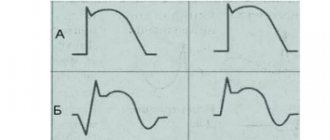According to statistics, about 70% of pregnant women do not visit the dentist. Neglect of treatment is justified by the opinion that anesthesia and dental procedures themselves can harm the fetus and the mother’s body. However, untimely seeking help and foci of infection can cause greater harm: caries, poorly treated root canals, inflammatory processes of the gums, plaque, abscess, periostitis. The neglect of pathological processes is fraught with the entry of microorganisms and their metabolic products into the general bloodstream and the development of a secondary infection.
It is important to remember that it is easier to prevent the disease than to resort to surgical treatment and medication in the future. That is why timely diagnosis and dental treatment during pregnancy is extremely important for maintaining the overall health of the mother and unborn child. In addition, a routine examination by a dentist is included in the list of mandatory examinations when planning pregnancy and during pregnancy.
Features of dental treatment for pregnant women
Dental treatment is a mandatory medical procedure, regardless of whether a woman is preparing to conceive a child or is already pregnant. The dentist’s tactics depend on the trimester of pregnancy, its course, the general somatic health status of the pregnant woman and indications for treatment. Peculiarities of management of pregnant women are characterized by the following features:
Treatment planning
During pregnancy, emergency dental treatment is performed, the indications for which are:
- Carious lesions of hard and soft tissues of teeth: pulpitis, periodontal inflammation (periodontitis).
- Pathological processes of soft tissues of the oral cavity, gums: gingivitis, stomatitis, cheilitis, glossitis, inflammation of periodontal tissues.
- Tooth injuries: fracture of the crown or root of the tooth, dislocation, cracks and chips of the crown part.
- Abscesses.
- Acute purulent inflammation of the jaw bone tissue.
Planned therapy (orthodontic, implantological and orthopedic treatment) is postponed to the postpartum period.
Pregnancy data
Before starting treatment, you should inform your doctor about the duration and course of pregnancy, taking medications prescribed before conception and during pregnancy, and bad habits. These data can significantly affect the treatment plan drawn up by the dentist.
X-ray diagnostics
X-ray examination is extremely undesirable in all trimesters of pregnancy: failures in the formation of fetal cells can lead to irreparable consequences and abnormalities. The 1st and 3rd trimesters are especially dangerous for radiation diagnostics, however, the 2nd trimester is no exception, although it includes lower risks of developing pathology.
Dental filling
When filling teeth, materials of both chemical and light curing are used. Curing lamps used for curing are also not safe for the developing fetus.
Anesthesia
At the present stage of development of dentistry, painkillers are produced that are absolutely harmless to the pregnant woman and the fetus. High-quality anesthesia is half the success of treatment.
ADVANTAGES OF PREGNANCY MANAGEMENT IN THE PIROGOV CLINIC (St. Petersburg)
- A team of experienced, professional and attentive obstetricians and gynecologists - our doctors have experience working in clinics in Europe and the USA, as well as in various medical institutions and maternity hospitals in St. Petersburg.
- The presence of all the necessary highly specialized doctors of different specializations and our own laboratory in one place - test results quickly and with a guarantee of reliability.
- Extremely positive reviews about pregnancy management in our clinic on independent sites.
- Diagnostics using new generation equipment.
- Online consultations with obstetricians and gynecologists
- The clinic is located in a picturesque part of the city on Bolshoy Prospekt of Vasilyevsky Island (free parking, walking distance from the Vasileostrovskaya metro station)
- Service under VHI policies.
Make an appointment with an obstetrician-gynecologist: 320-70-00 - we are always happy to answer your questions!
Contraindications and limitations to treatment
A contraindication to dental treatment for a pregnant woman is any procedure that can directly or indirectly harm the body and cause premature birth. Such procedures include the following:
Implant treatment
Both healthy fetal development and complete implant healing require large amounts of calcium. During pregnancy, the body is unable to produce enough mineral to support both processes. Even taking vitamin and mineral complexes sometimes does not give the desired effect. Therefore, every gram of calcium counts.
An additional danger during treatment is the need for X-ray monitoring of the implant installation, as well as the prescription of medications during the recovery period. The latter can have a general toxic effect not only on the pregnant woman’s body, but also on the developmental processes of the fetus.
Professional whitening
During bleaching, the enamel is damaged, which due to pregnancy may be somewhat depleted in mineral composition. Due to the fact that most of the calcium produced goes into the fetus's body, it may not be enough to restore the top layer of enamel. The result is increased sensitivity and microcracks.
Prosthetics
Installation of fixed dentures requires special preparation: preparing the tooth and forming a stump for the crown, removing the dental pulp, filling the root canals. The installation of crowns is contraindicated for pregnant women in the 1st and 3rd trimesters. In the 2nd trimester, in emergency situations, removable prosthetics are allowed.
Tooth extraction
Removal of teeth that are not the cause of discomfort (impacted or dystopic) is contraindicated during pregnancy. If there is a possibility of rescheduling the operation and there are no obvious clinical signs (pain, redness and swelling of the gums), then in order to prevent the development of infection, it is better to refuse the procedure before delivery.
Emergency cases requiring immediate tooth extraction:
- Fracture of the root or crown of a tooth.
- Pulpitis of wisdom teeth.
- Carious lesions of the tooth root.
- Periodontitis.
- Tooth root cysts.
- Destruction of more than 50% of the tooth, accompanied by unbearable pain.
Antibacterial therapy
Antibiotics during pregnancy are prescribed strictly according to indications and taking into account the duration of pregnancy. For treatment, those groups of drugs that do not have a teratogenic effect are selected.
Application of Corvalol
The method of administration of the drug is oral, it is consumed before meals.
If there is an urgent need, then Corvalol can be taken during pregnancy, but only in rare cases. If the expectant mother uses a sedative to calm her nerves 2 or 3 times, then it will not harm the fetus. However, this rule applies if women take it after the 13th week of pregnancy.
The tablets are washed down with water, and the drops are pre-diluted
In emergency cases, you can drink Corvalol in case of tachycardia or convulsions, in which case the dosage is from 40 to 50 drops. Although during pregnancy, the lower the dose, the better. Rarely when you need to undergo a therapeutic course, drink the tincture before meals, no more than 30 drops 3 times a day.
Many pregnant patients believe that Corvalol tablets are safer than tincture, but this opinion is erroneous. This dosage form contains the same harmful components as the drops (with the exception of additional substances). Therefore, the tablets have the same contraindications as the liquid form of Corvalol. In case of urgent need, take 2 or 3 tablets, the maximum daily dose is 6 pieces.
Dental treatment in the I, II and III trimesters
The dentist’s tactics when treating teeth in pregnant women depend on the specific stage of pregnancy - trimester.
Treatment in the first trimester
The first trimester is the time from the 1st to the 13th weeks of pregnancy. This period is characterized by the formation of the rudiments of the organs of the unborn child. At the same time, the placenta does not yet provide adequate protection of the fetus from the influence of factors of the external and internal environment of the mother’s body.
In the first trimester, a pregnant woman is worried about toxicosis, manifested by systematic nausea, short-term vomiting, hypersalivation, slight dizziness, and slight hyperhidrosis. Any, even minor, stress factor can cause a violent reaction in the body, even leading to miscarriage.
In dental treatment, courses of remineralization therapy and professional teeth cleaning without the use of ultrasound are acceptable. Filling, tooth extraction, prosthetics, dental implantation and x-ray diagnostics are contraindicated during this period.
Treatment in the second trimester
The second trimester lasts from the 14th to the 26th week. The placenta in this trimester is fully formed and provides reliable protection for the fetus. Dental treatment carries fewer risks, but still requires consultation with a gynecologist. During this period, you can perform dental fillings, surgical treatment (strictly according to indications), therapy for inflammatory diseases that may worsen by the 3rd trimester or after childbirth, professional removal of dental plaque (hard and soft).
Treatment in the third trimester
The third trimester is the period from the 27th week until birth. During this period, the woman’s body is actively preparing for childbirth, and therefore may be somewhat weakened. A pregnant woman experiences tachycardia, increased breathing, shortness of breath, decreased blood pressure, and increased anxiety. The woman constantly feels tired. Treatment in the 3rd trimester is exclusively emergency. Planned procedures are postponed until the postpartum period.
In all three trimesters, pregnant women are allowed to carry out professional oral hygiene, the method of which will vary depending on the timing of pregnancy and the condition of the body of the expectant mother.
Precautionary measures
Before using the medicine, a pregnant woman should carefully study the instructions, especially paying attention to contraindications:
- Intolerance to the components of Corvalol.
- Functional disorders of the liver and kidneys.
- Hypolactasia (while taking pills).
- Pregnancy and lactation.
After taking Corvalol to a pregnant woman, the likelihood of negative effects increases
If the patient took the drug for a long time or independently increased the dose, then the likelihood of a negative effect of Corvalol on the fetus increases:
- dysfunction of the central nervous system;
- sleep disorders, frequent stress in the child;
- congenital heart defects;
- congenital pathologies, for example, cleft lip.
In addition, the drug is unsafe for the expectant mother, because when used systematically, it has the opposite effect:
- sleep disorders will worsen;
- the activity of the central nervous system is further inhibited;
- drug dependence develops;
- the likelihood of developing more severe nervous disorders increases;
- the woman becomes more irritable and worried.
Thus, Corvalol does more harm than good, for this reason it is worth abandoning this drug during pregnancy and breastfeeding.
Principles of pain management
Modern painkillers used in dental practice do not penetrate the placenta and do not change uteroplacental blood flow. They include a lower dose of the vasoconstrictor component, while the analgesic effectiveness remains high.
The drugs of choice include:
- Ultracaine.
- Scandonest (Mepivacaine).
- Ubistezin.
- Alfacaine.
It is not advisable to use lidocaine for local anesthesia, as this drug can cause convulsions, pressure changes, severe dizziness, vomiting and muscle weakness. Carrying out pain relief during tooth extraction or therapeutic treatment must be done under strict monitoring of the pregnant woman’s condition – blood pressure, respiratory rate, pulse.
Local anesthetics are not absorbed into the general bloodstream, as they are inactivated by local tissue factors. The entire volume of the anesthetic substance acts only at the site of its injection. Dental treatment during pregnancy under general anesthesia or sedation is strictly contraindicated.
Miscarriage
Miscarriage is a spontaneous termination of pregnancy, independent of the woman’s will, at up to 22 weeks. The phenomenon is quite common. Every fifth pregnancy in women can end in spontaneous miscarriage.
The symptoms of miscarriage in the early stages (6-8 weeks) may not be very noticeable. There may be a delay in menstruation, a change in the nature of bleeding during menstruation, and moderate lower back pain. According to statistics, about 80% of all miscarriages occur before 12 weeks.
A miscarriage in late pregnancy is accompanied by symptoms such as nagging pain in the lower back, abdomen and sacral area, brown or scarlet spotting from the vagina. If treatment is not carried out, then the detachment of the fruiting body from the wall of the uterus and its expulsion begins. In this case, bleeding may increase and intense cramping pain may occur. A miscarriage can result in the release of the entire fruiting body or its parts getting stuck in the uterus (in such a case, medical intervention will be required).
A recurrent miscarriage is a spontaneous termination of pregnancy (up to 22 weeks), which is repeated with each pregnancy.
If a woman has had 2 or more spontaneous miscarriages, doctors can diagnose “recurrent miscarriage.”
1 Diagnosis of complications during pregnancy
2 Diagnosis of complications during pregnancy
3 Diagnosis of complications during pregnancy
Carrying out procedures
All dental procedures are carried out after a preliminary consultation with a gynecologist and a general assessment of the need for dental intervention. A thorough examination and high-quality anesthesia are the key to effective treatment of diseases of the hard and soft tissues of the oral cavity.
Regular examination by a dentist and timely prevention of oral diseases are integral components of the health of the mother and fetus. You should not put off visiting a specialist and hope that the problem will solve itself. Modern dentistry has made a big leap in treatment, pain relief and treatment procedures for pregnant women, so if you doubt whether it is worth treating your teeth during pregnancy, then yes, it is definitely worth it.
Premature birth
Preterm labor is the onset of labor before 37 weeks. Premature birth can occur suddenly or follow an existing threat of miscarriage.
The process can begin with uterine hypertonicity, isolated contractions and moderate abdominal pain. Another scenario is rupture of the membranes and rupture of amniotic fluid. Sometimes premature labor can begin with bleeding. This happens with placenta previa or placenta abruption.
In any case, urgent hospitalization of the pregnant woman is necessary, in which all necessary measures will be taken to maintain the pregnancy.
In case of critical placental abruption and rupture of the amniotic sac, emergency delivery may be performed.








